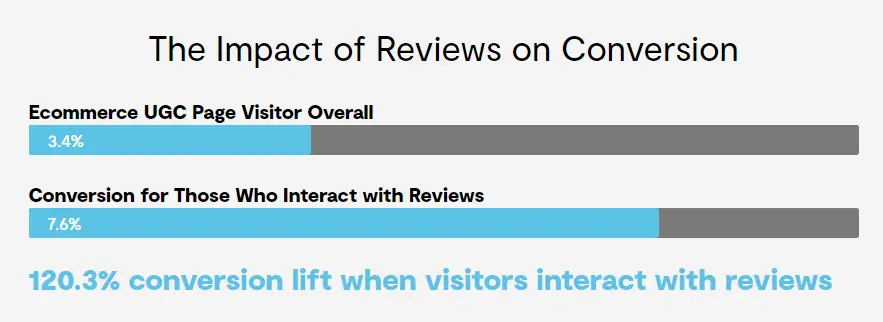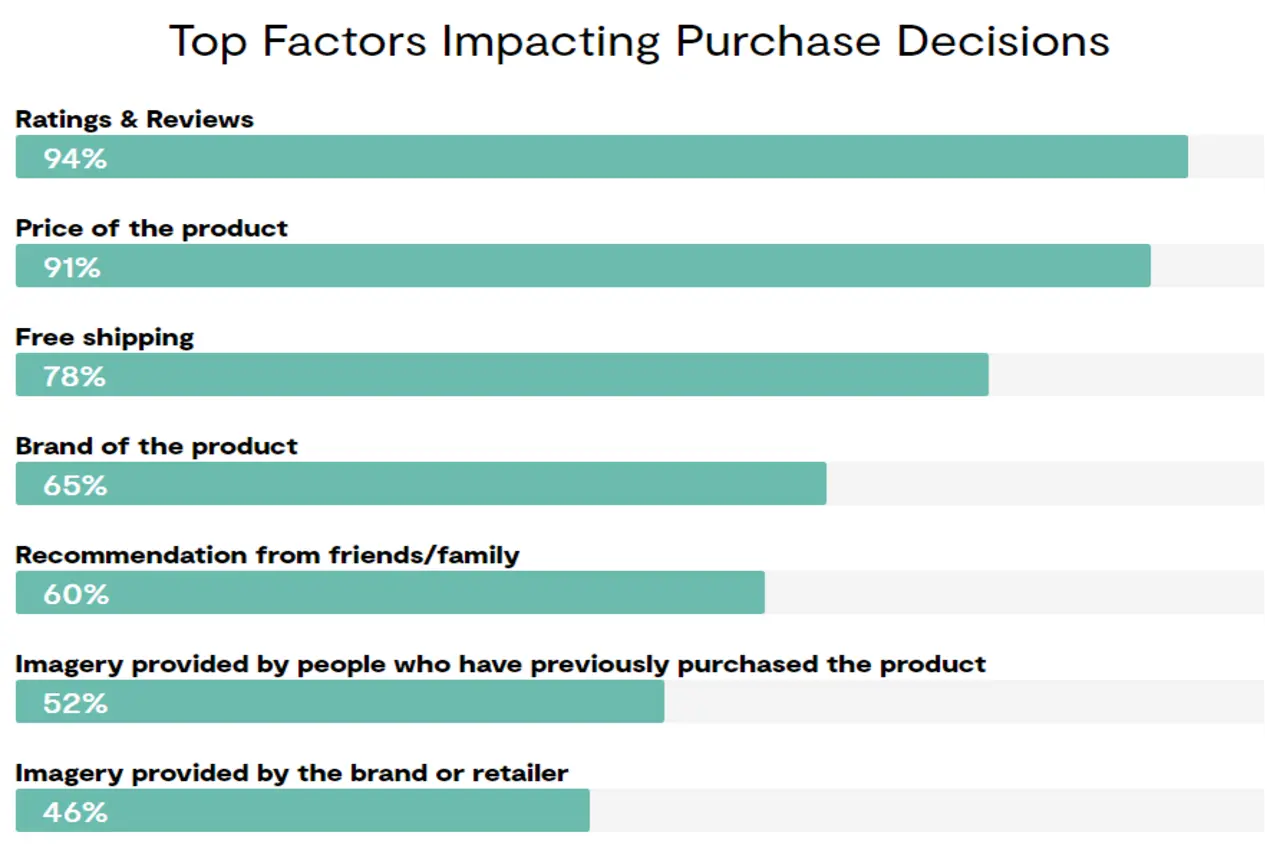We all know that product reviews are crucial, but do we really understand their impact on sales? What difference do they make?
Almost every consumer—99.9%—reads reviews, and 98% see them as a critical part of their buying journey. Pages with 1-10 reviews have a 52.2% higher conversion rate than those without any. No matter the product, more reviews usually lead to higher conversions and sales.
This article delves into how reviews influence purchase rates and what makes a review effective.
The Prevalence of Review Reading
A 2018 survey found that 97% of consumers read reviews, and 89% considered them a vital step in the purchasing process.
Today, the importance of the Consumer Decision Journey (CDJ) is more significant than ever. Ignoring reviews is a huge mistake.
Since 2018, these numbers have increased.
As of 2023, 99.9% of consumers read reviews, and 98% find them essential. In a world overflowing with information, consumers rely on honest feedback to make decisions.
The survey also revealed that 86% of online shoppers wouldn’t buy a product without reading reviews first.
The Importance of Reviews in Korean E-Commerce
Korean e-commerce platforms like Coupang, Naver Shopping, and Gmarket have demonstrated the significant role of reviews in consumer purchasing decisions.
- Coupang: Known for its “Rocket Delivery” service, Coupang is one of Korea’s leading e-commerce platforms. Product reviews on Coupang are highly influential. The platform’s review system is integrated with its logistics and customer service, making reviews a critical factor in consumer trust and satisfaction. Products with higher review ratings and more reviews generally experience faster sales and higher visibility.
- Naver Shopping: As Korea’s top search engine, Naver also hosts a popular shopping platform. Naver Shopping’s review system is tightly interwoven with search algorithms. Products with positive reviews and a large number of ratings tend to rank higher in search results, leading to increased traffic and conversions. This integration highlights how reviews not only impact consumer trust but also influence product discoverability.
- Gmarket: Another major player, Gmarket, relies heavily on user reviews to drive sales. Gmarket’s review system includes detailed feedback and ratings, which are prominently displayed on product pages. This visibility makes reviews a key component in a consumer’s decision-making process. High ratings and a substantial number of reviews can significantly boost a product’s appeal and credibility.
These platforms show that reviews are not just a supplementary aspect of the buying process but a central component that drives sales and builds brand reputation in Korea.
Impact of Reviews on Purchases and Conversions
According to the 2021 UGC Conversion Impact Analysis, interacting with ratings and reviews on a product page can boost conversion rates by 120.3%.
Are More Product Reviews Better?
The importance of reviews is evident from their effect on conversion rates. But is it always better to have more?
To see if more reviews lead to higher conversions, we need to look at the conversion rates of pages with the most reviews.
By tracking all conversions over 24 hours on a specific site, we can see how review exposure influences conversion.
Data tracked over a year (May 12, 2020 – May 14, 2021) showed the impressive impact of review volume on conversions:
- Product pages with at least one review saw a 52.2% increase in conversion rate.
- Pages with 11-30 reviews experienced over a 200% increase.
- Pages with over 101 reviews saw a more than 250% increase.
Although this data primarily pertains to Amazon and other English-language websites, the trend is similar for Korean users. The clear takeaway is that more product reviews are better.
“It’s all about sample size. The more reviews, the more likely the comments will reflect the product’s true quality.”
Professor Park Sung-sik of the University of South Carolina in the Wall Street Journal article “How Initial Consumer Reviews Can Affect Future Ones.”
In Korea, this principle holds true as well. More reviews offer a more accurate representation of a product’s quality, leading consumers to trust the product and the brand.
Never Doubt the Importance of Product Reviews

In conclusion, reviews are incredibly important. All marketing channels must consider ROI and ROAS.
Whether it’s the cost of paid media or the labor costs of owned media, the expected effectiveness compared to these costs is always evaluated.
The takeaway is that securing reviews offers significant ROI and ROAS. Prioritize gathering a large volume of positive and realistic reviews over other advertising or marketing channels. These reviews should portray your brand and products positively and realistically. In Korea, this is especially crucial given the high value consumers place on reviews.
When developing marketing strategies, ensure that obtaining comprehensive and positive reviews for your product pages is a top priority. This approach is vital for success in the competitive Korean market.






